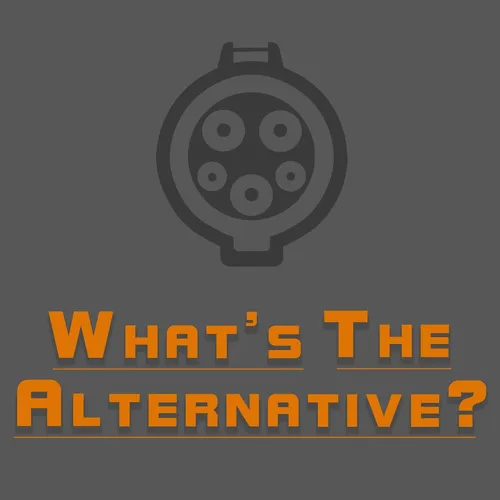Weekly-ish News - Episode 12 (April 18, 2021)
- Author
- Tyler Herrmann
- Published
- Mon 19 Apr 2021
- Episode Link
- https://www.spreaker.com/show/whats-the-alternative_1
If you have any feedback or suggestions, please feel free to find me on Twitter @archduketyler
Headlines from this episode:
U.S. Emissions dropped by 1.7% in 2019, compared to 2018.
- Data from the EPA's Inventory of Greenhouse Gas Emissions and Sinks Report
- This drop is partially due to a 1% decrease in total energy used in the U.S.
- In 2018 emissions *increased* by 3%
- Emissions Portfolio:
- This also represents a 13% decrease from 2005 levels in the U.S.
- "The Obama administration said that its goal would be for the U.S. to reduce its emissions by 26 to 28 percent compared with 2005 levels by the year 2025, and the Biden administration is slated to announce updated emissions reduction goals next week."
Electric Vehicles:
- EVs tend to be much heavier than gas/diesel vehicles, so they produce more pollution from tires.
- This is both an issue from a microplastics perspective and a PM emissions perspective.
GM is reportedly planning a battery manufacturing facility in Tennessee with LG Chem.
- This would be their second U.S. battery factory.
- Allegedly a $2.3b plant.
Berlin University Professor is doing a feasibility study about battery swap for long-haul trucking.
- The study looks at different mechanisms for doing the swap, all automated.
The VW ID.4 has an official EPA rating of 260 miles, at least for the Pro version.
- Smaller battery version expected in 2022.
Sandy Munro is working through a video series on the VW ID.4.
Tesla has a very short range Model 3 available in Canada.
- Basically a compliance car?
- Apparently Canada has a rebate for any model that has a *base* price below a certain amount, and this gets the Model 3 below that threshold.
- This is a mild surprise because they're a Toyota subsidiary.
- This is also a mild surprise because battery production is such a hurdle.
- They say they're working closely with battery partners.
Rivian is going to offer insurance.
The Swiss train company, Stadler, has demonstrated a battery-electric train with a range of 185km.
Romania is deploying 123 Solaris electric transit buses!
Bermuda is deploying 30 electric transit buses!
- This move is in addition to towards their goal of 85% renewables on the grid by 2035.
Batteries:
- “There are significant technological issues to get past, issues that many in the industry have been trying to tackle for years,” Wood Mackenzie Analyst Ram Chandrasekaran told Bloomberg. “If achievable, these battery cells would be groundbreaking. But the jury’s still out on whether they’re deliverable.”
- “Producing these larger cells requires you raise your craftsmanship one or two full levels or there will be safety issues,” Yasuaki Takamoto, Panasonic’s EV battery head, told Bloomberg, and added that his company’s proven safety systems “absolutely give us an upper hand here.”
- He was also slightly skeptical of the specific format, though, saying that it posed issues with thermal control and would be harder to manufacture.
Energy:
Wind was the largest source of electricity in Texas in March 2021.
- 39% wind
- 30% gas
- 15% coal
- 12% nuclear
- 4% solar
Policy:
Washington state is hoping to phase out gasoline and diesel vehicles by 2030.
- Mentioned in Episode 6.
- The bill has passed.
- This is a goal, not a ban.
- This is the most aggressive date in the U.S.
- "Dubbed Clean Cars 2030, the bill covers passenger cars and light-duty trucks, but excludes emergency vehicles and vehicles weighing more than 10,000 pounds. Hydrogen fuel-cell vehicles are considered "electric" for the purposes of this legislation."
- "The bill also calls for a road-usage charge, so that the state continues to have revenue for infrastructure, gradually replacing the gas tax. Such a fee has already been pilot tested in Washington."
